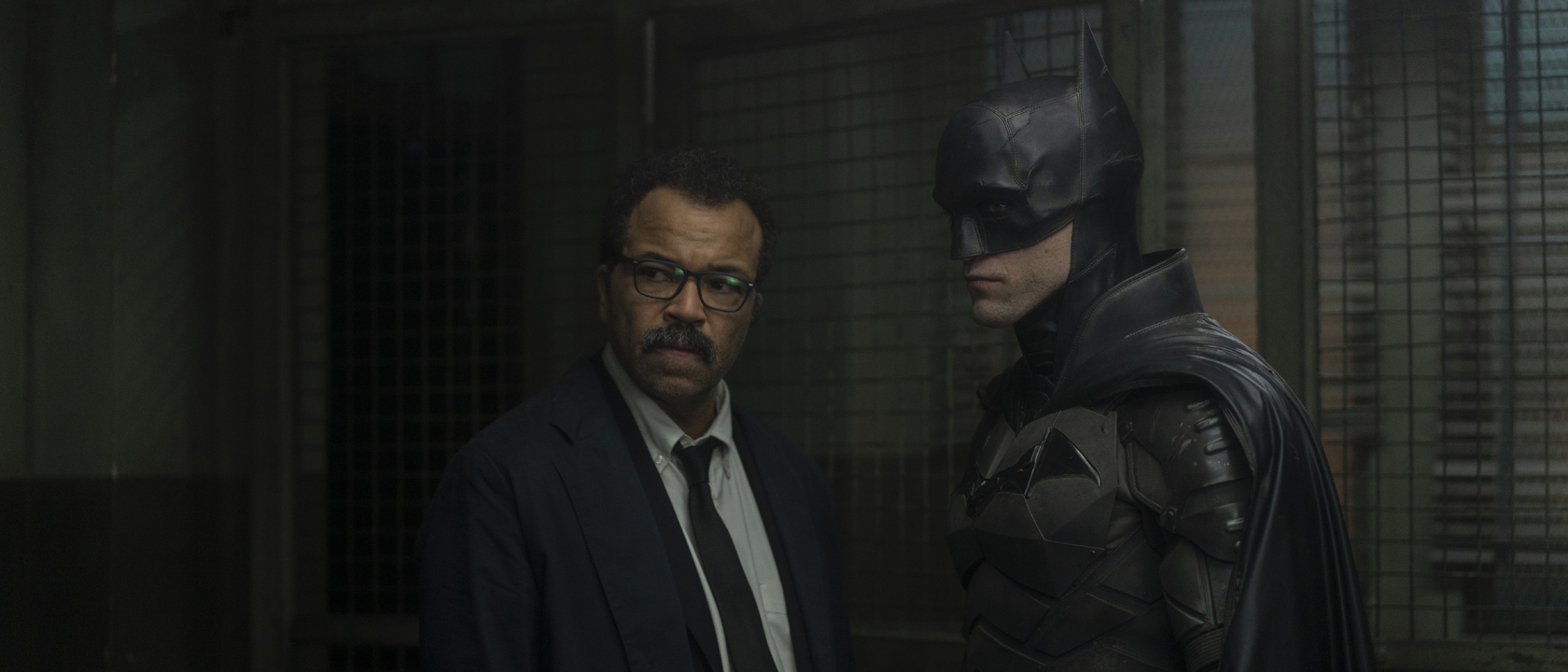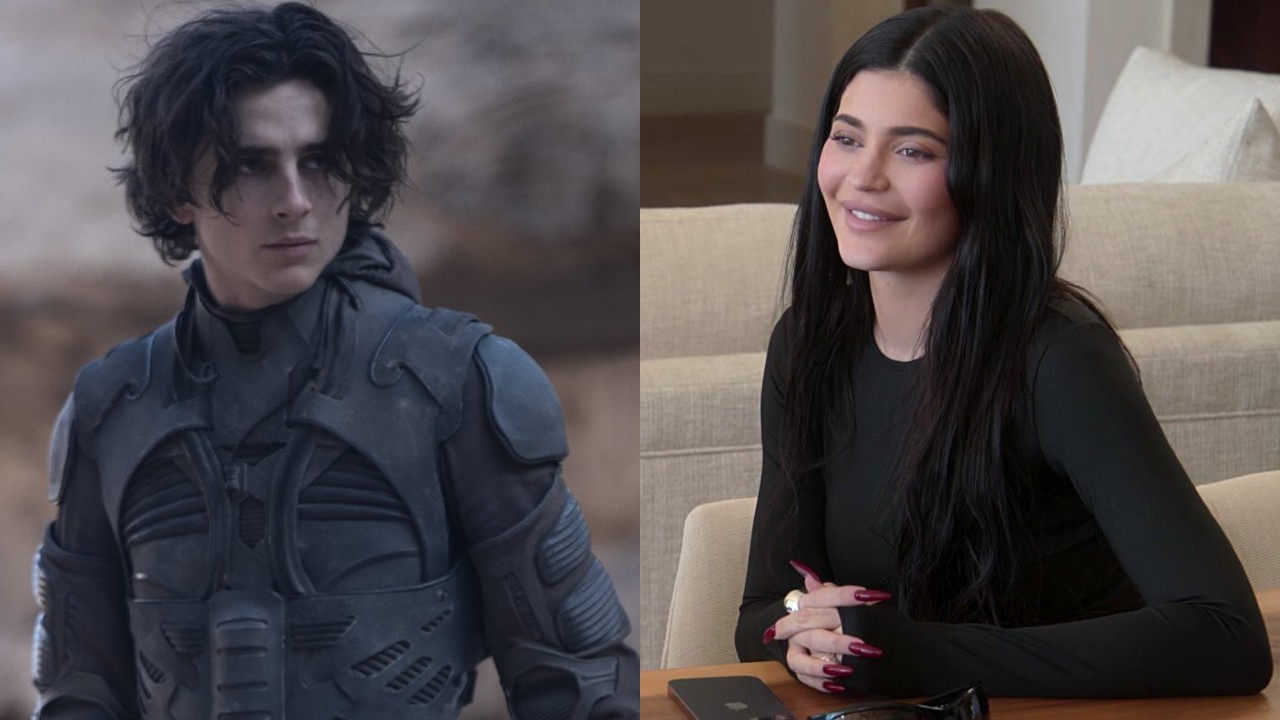The legacy of Batman on the big screen is far from flawless, as few fans who were alive in the mid-1990s will forget watching the hit franchise sputter and die with Batman Forever and Batman & Robin, but it’s an impressive legacy nonetheless. Talented filmmakers and performers are drawn to the brooding hero, and those who have left their stamp have permanently impacted pop culture – both earning the unending fascination of millions of fans, and effectively changing the way that the industry functions (the phrase “dark and gritty” became so often repeated in the wake of The Dark Knight that it became meaningless).
The code to making a great movie about the Caped Crusader has been cracked, and audiences build that into expectations with every new blockbuster featuring him front and center. With this in mind, one receives Matt Reeves’ The Batman with an odd perspective. It’s a reboot that opts not to explore radical new approaches with the protagonist and redefine him, and instead leans hard into everything that is brilliant and beloved about the superhero.
The result is that the film isn’t one that could be described as groundbreaking – but at the same time, that context is the only thing that undercuts it, as otherwise it’s a spectacular, thrilling, and impressive interpretation of the character with a stirring story to tell.
Matt Reeves’ vision for The Batman isn't a carbon copy of prior efforts simply with a new star in the cape and cowl. It steers away from material we’ve seen endlessly (fear not: we do not actually see Thomas and Martha Wayne get murdered in this one), and there is an emphasis on the Sherlockian title of “World’s Greatest Detective,” with Paul Dano’s The Riddler challenging Gotham’s protector with gruesome crime scenes and twisted puzzles. It is, however, all still built on a familiar foundation – noir overtones and a grounded reality – that prevents it from ever feeling unique.
Avoiding conventions, Matt Reeves’ pure aim with the film is simply to tell a great Batman story.
Skipping over the Batman Begins of it all and assuming that the audience is fully aware of the classic origin story, Bruce Wayne (Robert Pattinson) is portrayed as in the second year of his campaign against crime, and he is a man obsessed. He extensively journals each of his nightly outings stalking and investigating the criminal element that runs rampant on the streets – cinematically treated as voice over dialogue that evokes the yellow boxes on the comic book page – and he has become a feared and controversial figure in his city.
One ally he has acquired is Detective James Gordon (Jeffrey Wright), and it is through this connection that Batman is able to gain access to the home of Mayor Don Mitchell Jr. (Rupert Penry-Jones) after the politician has been discovered murdered by a serial killer who has left a note directly addressed to the vengeful vigilante.
Following the clues provided, the Dark Knight finds himself driven right to the heart of Gotham’s criminal underworld: the Iceberg Lounge, the club frequented by mobsters such as Oswald Cobblepot a.k.a. The Penguin (Colin Farrell), and the powerful-but-rarely-seen Carmine Falcone (John Turturro). As The Riddler’s homicidal spree continues, spectacular corruption comes to light along with a dangerous secret, and Bruce not only discovers devastating answers to questions about his parents’ mysterious deaths, but learns that they possibly weren’t the people he always thought they were.
Your Daily Blend of Entertainment News
In many ways, The Batman is the film I’ve been waiting for as long as I’ve been a DC Comics fan. It doesn’t treat movie-goers as though it has to teach them who the main character is, and instead drops us into a Bat-centric story without all the needless exposition. The key figures enter the picture organically from the narrative in a way that tells you everything you need to know about them, and it all flows without excess or stiltedness.
That’s a vital factor when you consider the blockbuster’s near three-hour runtime, but Matt Reeves makes every minute count in terms of storytelling and immersion. Far from the Jim Carrey version of the Riddler in the aforementioned Batman Forever, Paul Dano’s villain successfully keeps the stakes dangerously high at all times, and each new piece of his puzzle only further enhances the audience’s curiosity about the big answers to the mystery and the methodology of the hero. There’s an effective escalation in the reveals, and eye-widening action to balance the shadowy drama.
Every star in The Batman finds special ways to portray their iconic characters, with Robert Pattinson and Colin Farrell being phenomenal standouts.
By the time the end credits are ready to roll, you feel as though you’ve walked the streets of this Gotham City, and while a great deal of that has to do with the immense personality that is delivered from brilliant production design and cinematography, it’s also very much an extension of feeling wholly comfortable with the metropolis’ residents – a credit to the depth of the character building and the strengths of the performances.
Robert Pattinson’s Bruce Wayne finds a certain middle ground between Michael Keaton’s and Christian Bale’s, portrayed as a public figure but also a solemn introvert, and it’s effective because this young version of the orphaned billionaire really only lives by night. He’s only whole when he puts on the suit – and it’s a surprising transformation, as you no longer see the actor when he is wearing the mask. You don’t recognize Pattinson when he is slowly emerging from the shadows, his body language and speech changed, and it’s effective in both creating the realism of the secret identity and captivating the audience.
Of course, it can be said that his transformation doesn’t hold a candle to what is going on in The Batman with Colin Farrell… working on the assumption that the production isn’t pulling some kind of insane ruse and that’s really him playing The Penguin in the film. When it comes to prosthetics and special effects makeup, cinema history is filled with genius work, but typically you can look into a character’s eyes and recognize the actor underneath (Danny DeVito’s Oswald Cobblepot in Batman Returns is actually a perfect example). That’s just not the case here, and I don’t know how to fully explain it. It’s a spectacular iteration of the noxious, unscrupulous villain from the comics (minus a weaponized umbrella), and the most genuine example of “disappearing into a role” that I have ever witnessed.
Colin Farrell and Robert Pattinson are the standouts, but Matt Reeves does right by all of the recognizable friends and foes of Batman and the high caliber actors who portray them. Zoë Kravitz has the slinky, sly energy that is a must for every incarnation of Selina Kyle, and passionate new motivation that very much works for the character – not to mention sparking chemistry with the male lead. John Turturro has Carmine Falcone’s presence dominate every room he enters with quiet but powerful confidence, and Jeffrey Wright instills the relationship between Gordon and the Caped Crusader with a quiet history and well-applied moments of humor.
The Dark Knight trilogy creates a shadow from which The Batman can’t quite come out underneath.
Inspired approaches to character; the ominous, pulsing theme from Michael Giacchino; and touches like the demon-from-hell version of the Batmobile all infuse Matt Reeves’ The Batman with special personality, but it also can’t quite eclipse the inherent catch-22 in its macro approach. Choosing to translate the fantastical elements from the comics through a realism filter, the movie naturally evokes memories of the similar philosophy used to genius effect in Christopher Nolan’s Dark Knight trilogy, and it would obviously come across as more original in its approach if it were not for its predecessor. Simultaneously, though, Nolan’s films essentially ran so that Reeves’ movie could sprint. Without the success of those movies, this one might not have ever made it out of the development pipeline.
So-called heightened realism is a terrific approach to the source material, but it also makes the new film feel like an extension rather than a full reinvention, and that will have an impact on the way audience receives it. That being said, there are also key ways in which the main character evolves over the course of the story that look to put the hero on a new and exciting path that could ultimately set this canon apart from any other we’ve seen on the big screen. Precisely what the future holds is unclear, but I’m certainly not ready to stop living in this world after just three hours.

Eric Eisenberg is the Assistant Managing Editor at CinemaBlend. After graduating Boston University and earning a bachelor’s degree in journalism, he took a part-time job as a staff writer for CinemaBlend, and after six months was offered the opportunity to move to Los Angeles and take on a newly created West Coast Editor position. Over a decade later, he's continuing to advance his interests and expertise. In addition to conducting filmmaker interviews and contributing to the news and feature content of the site, Eric also oversees the Movie Reviews section, writes the the weekend box office report (published Sundays), and is the site's resident Stephen King expert. He has two King-related columns.

